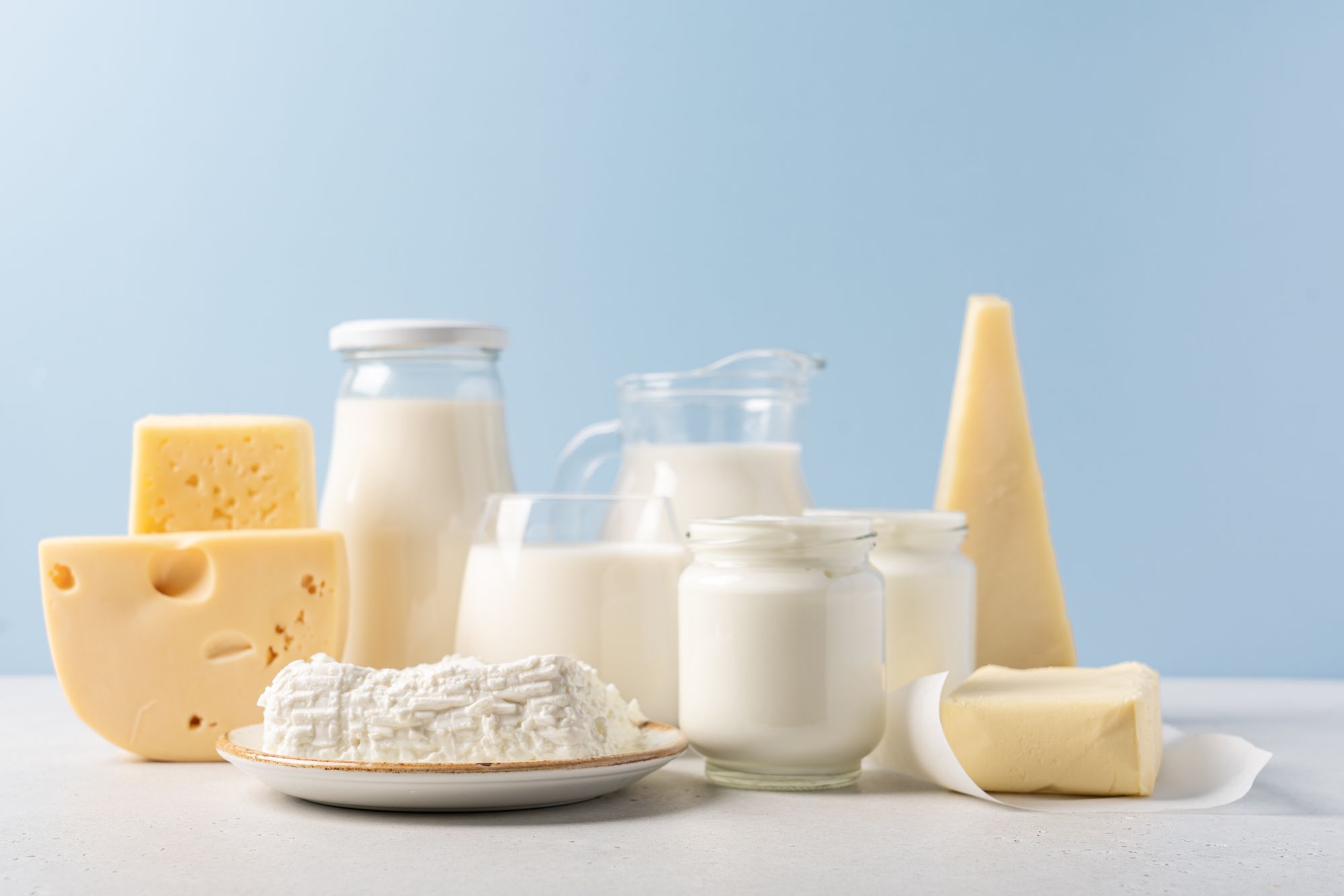Cheese is a beloved food that can be enjoyed in many different forms and used to add flavor and texture to a variety of dishes. From breakfast omelets to pasta dinners, cheese is a versatile ingredient that can be a staple in many people's diets. However, some people may wonder about the potential effects of eating cheese every day. In this article, we will explore what happens to your body if you eat cheese every day in more detail.
Increase Your Dietary Calcium with This

Cheese is a great source of calcium, a mineral that helps maintain healthy bones, and has been linked to the prevention of certain types of cancer, lower blood pressure, and maintaining a healthy weight. According to the Dietary Guidelines for Americans, 30% of men and 60% of women don't get enough calcium in their diets, and 75% of us don't meet the daily dairy recommendations of three services per day or 1,000 mg calcium per day. A 1.5-ounce serving of cheese provides anywhere from 115–350 milligrams of calcium, depending on the variety. Hard cheeses have the most calcium due to their lower water content, making them more nutrient-dense. Additionally, a 1.5-ounce serving of cheddar packs in 305 milligrams of calcium, which is one-third of what an average adult needs in a day.
Possibility of Stomach Discomfort with This

If you are lactose-intolerant, cheese may cause stomach upset after eating it and lead to bloating, gas, and diarrhea. However, cheese is significantly lower in lactose than milk and yogurt. Hard, aged cheeses are the lowest in lactose and are generally well-tolerated in small amounts. The cheeses that are the lowest in lactose and are generally well-tolerated include Parmesan, Swiss, blue cheese, gouda, cheddar, brie, camembert, and Edam. Cheeses with the highest amounts of lactose include ricotta and cream cheese. If you're lactose intolerant, it's best to consult with a healthcare professional or a registered dietitian to determine what amount of cheese is right for you.
Probable Enhancement of Gut Microbiome with This
Your gut is home to trillions of bacteria, fungi, and viruses that make up your gut microbiome. These microorganisms play a critical role in maintaining your overall health and wellness. Many varieties of soft and hard cheeses provide probiotics, which help improve your microbiome and GI and immune system health. Probiotics are found primarily in aged cheeses that are not pasteurized. Some cheesemakers are even adding probiotics to their cheese. For example, Babybel Plus+ Probiotic reportedly has one billion live and active cultures per serving. While research is still ongoing to better understand the quantity and viability of bacteria survival during cheesemaking, some studies have reported that cheese can survive digestion and colonize in the GI tract to impart health benefits.
Reduced Risk of Heart Disease Possible with This

Contrary to popular belief, research suggests that dairy food intake, including cheese, may not increase your risk for heart disease. In fact, studies have reported an inverse relationship between cheese consumption and cardiovascular disease. Those who ate cheese frequently were up to 18% less likely to develop cardiovascular disease, up to 14% less likely to develop coronary heart disease, and up to 10% less likely to have a stroke compared with those who had no or low cheese intake. One possible explanation for this is that cheese contains conjugated linoleic acid (CLA), which has been shown to have anti-inflammatory properties and may improve cholesterol levels.
Potential Benefits: Muscle Recovery Aid After Exercise
Cheese is primarily comprised of casein a slow-to-digest protein that also promotes protein synthesis post-exercise. Protein is essential for muscle recovery and growth, making cheese a great post-workout snack. A recent study reported in the Journal of Nutrition found that among 20 healthy male strength athletes, 30 grams of protein from cheese enhanced muscle protein synthesis, the same as taking 30 grams of protein from milk. While more research is needed to determine the optimal amount of cheese for post-workout recovery, adding a serving of cheese to your diet may help you recover faster and perform better in your next workout.
Warning: This Could Exceed Your Daily Calorie Limit

While cheese is a nutrient-rich food, it is also high in calories, sodium, and saturated fat. Overconsumption of cheese can lead to health problems such as weight gain, high blood pressure, and increased risk of heart disease. An ounce of most hard cheese has around 100–125 calories, depending on the variety. It's easy to eat 3–4 ounces in one sitting, either as a snack or as part of a main dish. To keep your cheese portions in check, consider grating punchy, sharp cheese, like Pecorino-Romano or Parmigiano-Reggiano, which allows you to use significantly less compared to a milder variety. You can also pair cheese with other healthy foods and ingredients like whole grains, dried fruit, veggies, and salad greens.
In conclusion, cheese can be a healthy addition to a balanced eating pattern, but it's important to keep portion size in mind. Cheese is high in calories, sodium, and saturated fat, and overconsumption can lead to health problems. However, cheese is also a nutrient-rich food that provides many health benefits, including improving your gut health, lowering your risk for heart disease, and promoting muscle recovery. As with any food, it's essential to consume cheese in moderation and to partner it with other healthy foods and ingredients to maintain a balanced and healthy diet.

